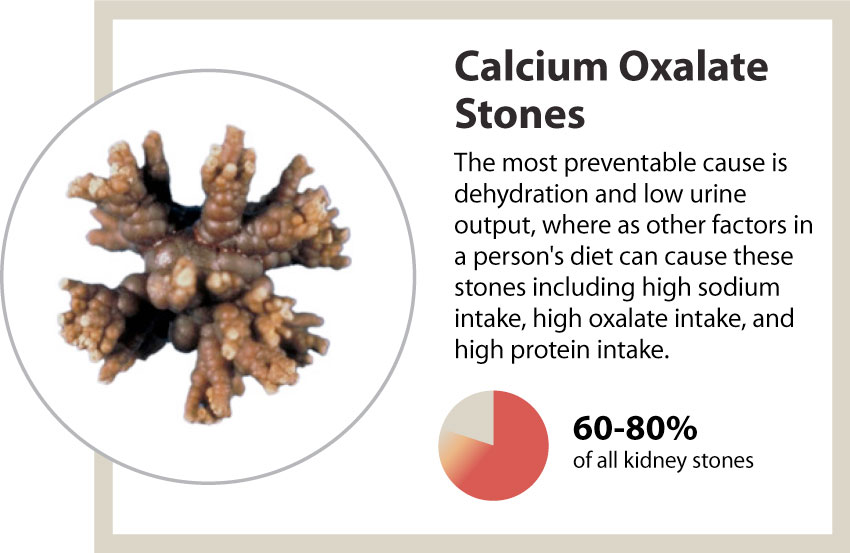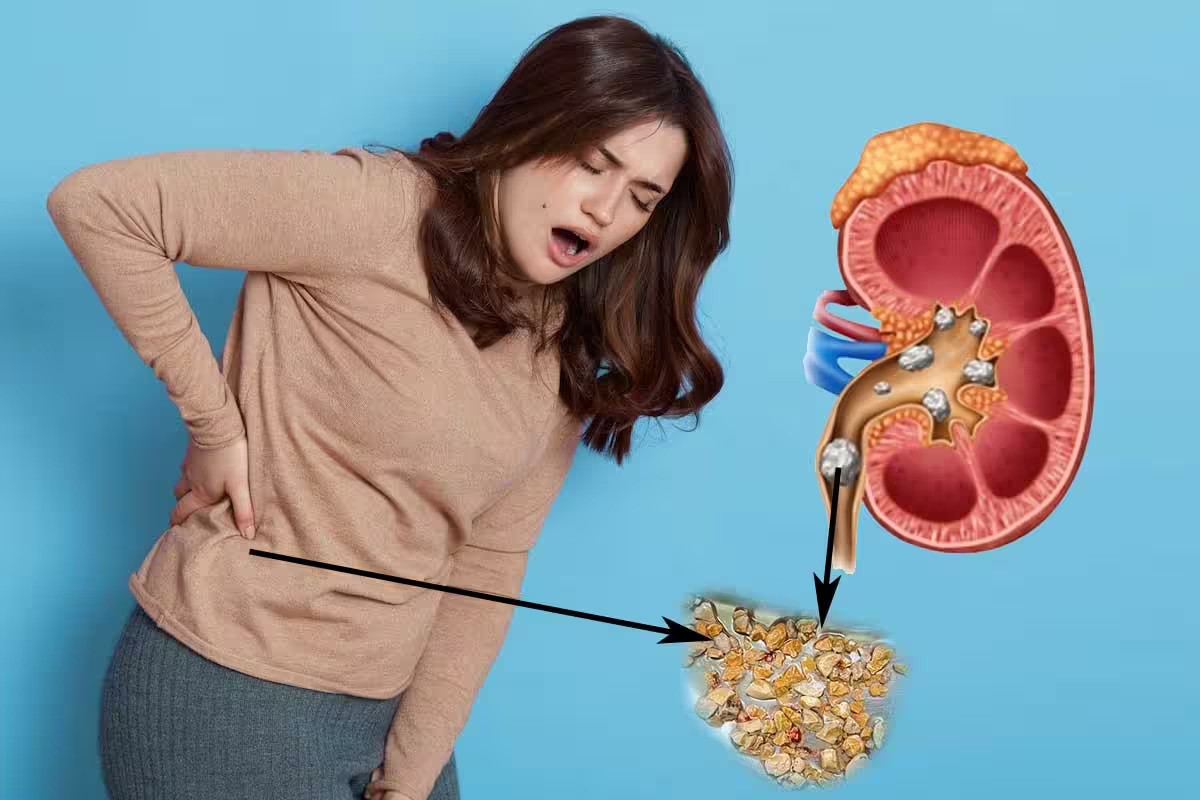Calcium oxalate stones are a common type of kidney stone that form when there’s an excess of calcium and oxalate in your body. Factors like dehydration, high protein, salt, or sugar intake, and obesity can increase your risk of developing these stones. But there are ways to reduce your chances, such as staying hydrated and managing your diet. It’s important to understand what causes them and how to avoid them to protect your kidneys and keep them healthy.
What are Calcium Oxalate Stones?

One of the most common types of kidney stones is calcium oxalate stones. These solid masses form in the kidney when there’s an excess of calcium, oxalate, cystine, or phosphate and insufficient liquid to dilute them. There are various types of kidney stones, but calcium oxalate stones form when there’s too much oxalate in your urine. A doctor or urologist can analyze your stones to determine their type and suggest appropriate treatment.
What is Oxalate, and How Does it Cause Kidney Stones to Form?
Oxalate is a natural substance found in many foods that your body uses for energy. After your body takes what it needs, waste products travel through your bloodstream to your kidneys and are removed through your urine. If there’s too much waste and not enough liquid in your urine, crystals can start to form. These crystals can stick together and form a solid mass, known as a kidney stone. Oxalate is a substance that can form crystals in your urine. These crystals form if there’s too much oxalate and too little liquid. This causes the oxalate to sticks to calcium while your kidneys produce urine.
Calcium Oxalate Stones Risk Factors
You might be at risk for forming calcium oxalate stones if you have certain risk factors, such as:
- Not drinking enough fluids leads to dehydration.
- Consuming a diet high in protein, oxalate, sodium (salt), or sugar, especially high fructose corn syrup.
- Being overweight or obese.
- Having medical conditions like Dent Disease, a rare genetic disorder affecting the kidneys, or hyperparathyroidism, where there’s an excess of parathyroid hormone in the blood, leads to calcium loss. Calcium is essential for binding with oxalate and leaving the body.
- Experiencing digestive diseases and surgeries like inflammatory bowel disease (IBD), including ulcerative colitis and Crohn’s disease, or having undergone gastric bypass surgeries.
It’s important to note that kidney stones are more common in individuals with inflammatory bowel disease (IBD). These conditions can affect your body’s ability to absorb fats properly. When fats aren’t absorbed correctly, they bind to calcium and leave oxalate behind. This oxalate is then absorbed and transported to the kidney, where it can form stones. Similarly, after gastric bypass surgery, your body absorbs less calcium from your digestive system, leading to higher oxalate levels in the urinary tract. Oxalate buildup can form crystals, which can turn into kidney stones.
If your body frequently develops calcium oxalate stones, your healthcare provider may prescribe tests for these conditions. They may also examine your lifestyle to help reduce your risk factors or identify the cause of your calcium oxalate stones.
How to Lower the Risk of Calcium Oxalate Stones?
Ensuring you stay hydrated is crucial. Drinking ample fluids, especially water, is the most effective strategy. Sufficient fluid intake dilutes your urine, making it more challenging for chemicals to accumulate and form crystals. Your healthcare provider will recommend the appropriate daily fluid intake based on your overall health, diet, and lifestyle.
1. Don’t consume sodium and calcium in excess
Limiting your sodium and protein intake is also advisable. Consuming excessive amounts of protein-rich foods can lead to stone formation. Reducing your salt (sodium) consumption is essential. A diet high in salt can increase calcium levels in your urine. Excessive calcium in your urine can lead to new stones and weaken your bones.
2. Manage your daily calcium intake
The right amount of calcium in your diet is essential. Contrary to what some might believe, avoiding calcium does not prevent stone formation; it does the opposite. Calcium in dairy products like yogurt, milk, and cheese should be consumed in adequate amounts. It binds with oxalate in the stomach and intestines before reaching the kidneys, helping oxalates leave the body without forming stones. The most effective way to absorb calcium is through your diet.
While taking a calcium supplement might seem convenient, it can increase the risk of forming new calcium oxalate stones. Consult your healthcare provider to determine the best way to include calcium in your diet, ensuring you have neither too little nor too much.
3. Don’t take vitamin C supplements
It’s also important to avoid vitamin C supplements. Consult your healthcare provider before taking them, as excessive vitamin C can lead to high oxalate levels in the urine as well.
4. Avoid oxalate-rich foods
Limiting your intake of oxalate-rich foods can help reduce the risk of forming new stones. Some foods have high oxalate levels and should be consumed in moderation. Foods particularly high in oxalate include:
- Nuts
- Tahini
- Sesame seeds
- Rhubarb
- Beets
- All Bran
- Buckwheat flour
- Miso
- Soy milk
- Chocolate
- Swiss chard
Is it Advisable to Avoid all Foods containing Calcium and Oxalates?
No, you shouldn’t eliminate all foods containing calcium or oxalate from your diet. It’s a common misconception that this will prevent kidney stones. In reality, completely avoiding these nutrients can lead to nutritional deficiencies and other health issues. Instead, consuming calcium and oxalate-rich foods together during meals is advisable. This combination allows them to bind in the stomach and intestines before reaching the kidneys, reducing the likelihood of stone formation in the urine.
The Bottomline
Calcium oxalate stones can be a painful condition, but by understanding the risk factors and making some lifestyle adjustments, you can significantly reduce your chances of developing them. Staying hydrated, eating a balanced diet, and being mindful of your calcium and oxalate intake are vital steps. Remember, it’s all about finding the right balance to keep your kidneys healthy and stone-free.

